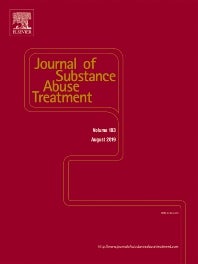Article, Refereed Journal
Journal of Substance Abuse Treatment

Objective
To determine the relative cost-effectiveness of individual female-specific cognitive behavioral therapy (I-FS-CBT) versus group female-specific cognitive behavioral therapy (G-FS-CBT).
Methods
This cost-effectiveness study is based on a randomized controlled trial in which 155 women seeking treatment for alcohol use disorder at an academic outpatient clinic were randomized to 12 manual-guided sessions of I-FS-CBT (n = 75) or G-FS-CBT (n = 80). The primary patient outcomes were the number of drinking days and the number of heavy drinking days during the 12-week treatment and 1-year follow-up periods. All cost data (including resource utilizations) were collected prospectively alongside the trial. Incremental cost-effectiveness ratios and cost-effectiveness acceptability curves were used to determine the cost-effectiveness of I-FS-CBT relative to G-FS-CBT. Results are presented from the provider perspective.
Results
During the 12-week treatment period, G-FS-CBT is likely to be cost-effective when the threshold value to decision-makers of one fewer drinking day (or one fewer day of heavy drinking) is less than $141 (or $258), and I-FS-CBT is likely to be cost-effective if the threshold is greater than $141 (or $258). During the 1-year follow-up period, G-FS-CBT is likely to be cost-effective when the threshold value to decision-makers of one fewer drinking day (or one fewer day of heavy drinking) is less than $54 (or $169), and I-FS-CBT is likely to be cost-effective if the threshold is greater than $54 (or $169). The results are robust to sensitivity analyses on several key cost parameters.
Conclusions
Compared to I-FS-CBT, G-FS-CBT holds promise as a cost-effective approach, in both the short run and the long run, for improving drinking outcomes of women with alcohol use disorder.
Research Topic
Health Care and Health Policy

